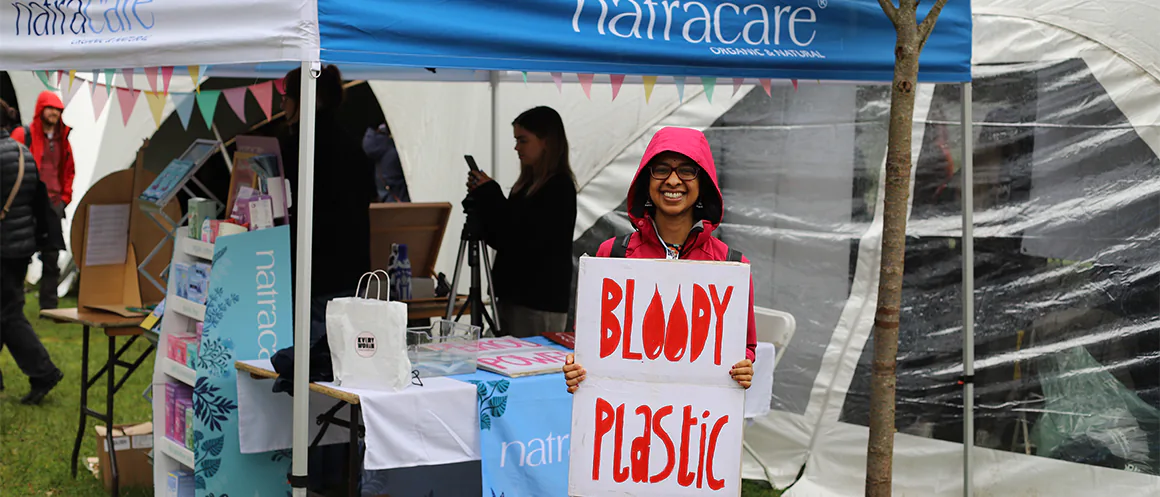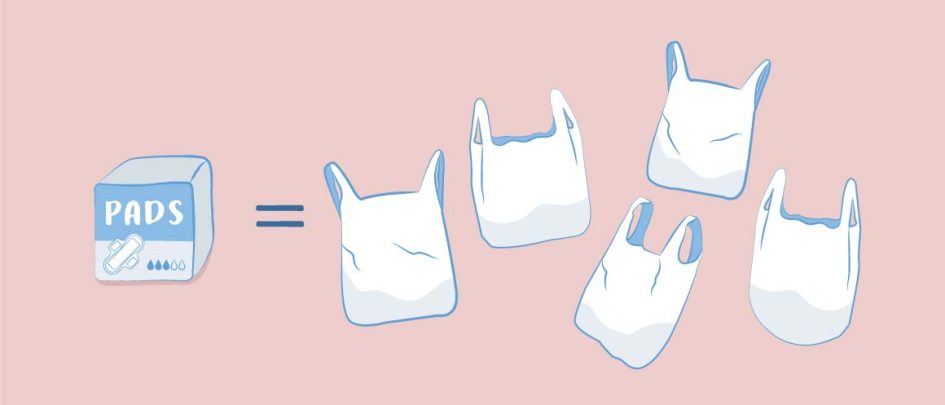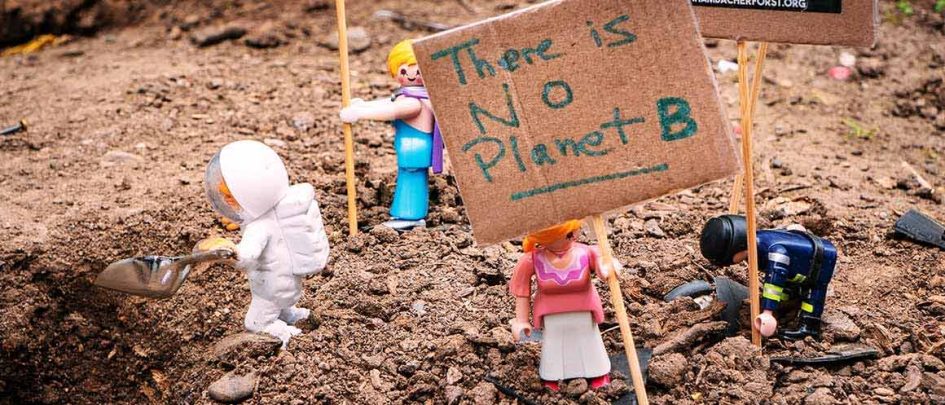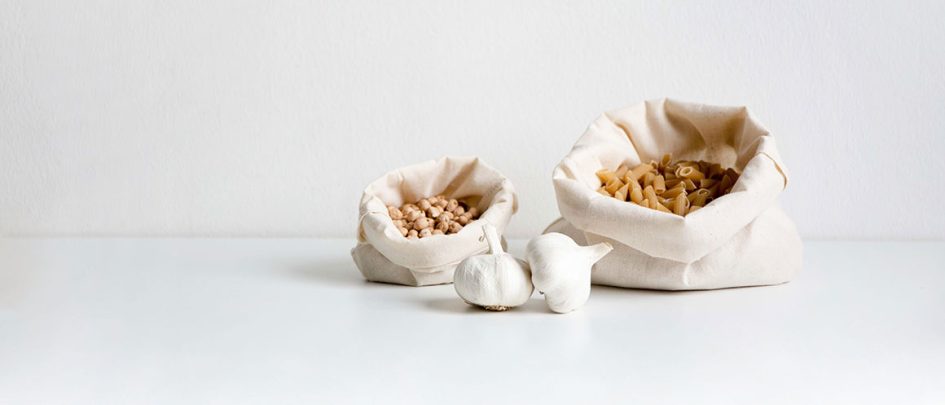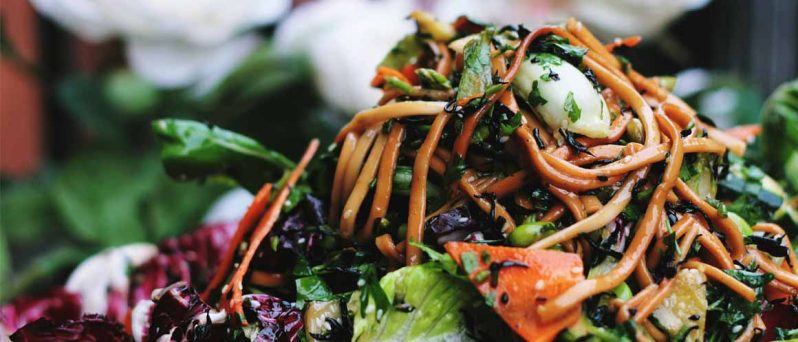In celebration of Plastic Free July, we’re excited to partner with Public Health Doctor and Natracare Ambassador, Dr. Nuthana talking all things climate change, plastic pollution, and period products. Earlier this year, Dr. Nuthana joined the Natracare team at Everywoman Festival to lead a powerful workshop on sustainable periods. This blog captures her passion for climate justice and menstrual equity – and offers practical ways we can all take small steps towards a healthier planet and body.
This is a guest blog by Dr. Nuthana, Natracare Ambassador
Climate Change and Our Health
Climate change has been described as the biggest threat to health worldwide; and one of our greatest public health opportunities.
As a public health doctor, I am passionate about encouraging people to live healthier lives and tackling the link between climate change and health. When Greenhouse gasses, like carbon dioxide trap heat in our atmosphere, the Earth gets warmer. This ‘global warming’ leads to extreme weather events like heatwaves, and flooding.
Right now, as I write this, the UK is in the middle of its second extreme heatwave of summer 2025. Droughts and water shortages have been reported nationwide. Globally, these extreme events are increasing hospital admissions and preventable deaths. Climate change also worsens existing inequalities, especially for women and girls, who are 14 times more likely to be affected.
It is not just an environmental issue. It is a health issue. This is why it is all our responsibilities, individually and collectively, to tackle the causes of climate change.
What Do Periods and Plastic Have to Do With it?
Plastic is made from fossil fuels, releases greenhouse gases, and takes centuries to break down into long lasting microplastic pollution. Fossil fuels and its production of plastic contributes directly to global warming and climate change.
Each Year, Plastic Free July encourages us to reduce our use of single-use plastic. And the numbers are eye-opening:
- We’ve produced 8.3 billion metric tonnes of plastic globally – that’s the equivalent of 25 Empire State Buildings.
- 91% of that plastic has not been recycled.
- Every year, we create 300 million tonnes of new plastic – the weight of the entire human population.
- Microplastics now outnumber the stars in the Milky Way.
And yet, many of us don’t realise that most conventional period products can be made of 90% plastic. A single pack of pads may contain the equivalent of five plastic bags worth of plastic. Over a lifetime, those who menstruate will have 480 periods; that’s 2,400 plastic bags – or 14.4kg of plastic – from just one person’s period! This is not including the growing impact of incontinence pads and diapers!
In the UK alone, 200,000 tonnes of plastic period waste ends up in landfill every year. And plastic takes 500 years to degrade into microplastics.
Period Product Swaps That Matter
One simple way to reduce plastic waste is to choose more sustainable period products.
Natracare tampons are made from certified organic, 100% cotton. The pads are made from organic cotton and other plant-based materials; are free from plastic, fragrances, dyes, and are totally chlorine-free. Their pads and liners are also certified compostable – which means they break down naturally, completing the natural cycle in less than a year.
In one year alone, Natracare’s plastic-free period products saved over 430,000 pounds of plastic – that’s more than the weight of a blue whale!
What Can You Do?
It’s easy to feel overwhelmed in the face of climate change. But small actions really do add up. As Margaret Mead once said:
“Never underestimate the power of a small group of committed people to change the world. In fact, it is the only thing that ever has.”
Here are a few ways you can make your period more sustainable:
- Try sustainable swaps like Natracare pads and tampons.
- Speak to your workplace about offering sustainable period products for staff – this improves staff wellbeing and looks after the planet.
- Let’s talk about periods – this is how we can break taboos around periods and talk about sustainable options.
Since switching to Natracare in May 2024, I’ve saved 70 plastic bags worth of plastic from being sent to landfill. That’s 350 grams of plastic that didn’t need to exist. It might not sound like much, but if we all make changes, the impact multiplies.
You don’t need to be a doctor to improve public health. Every small decision you make counts.
Happy Plastic Free July 💚
Dr. Nuthana
